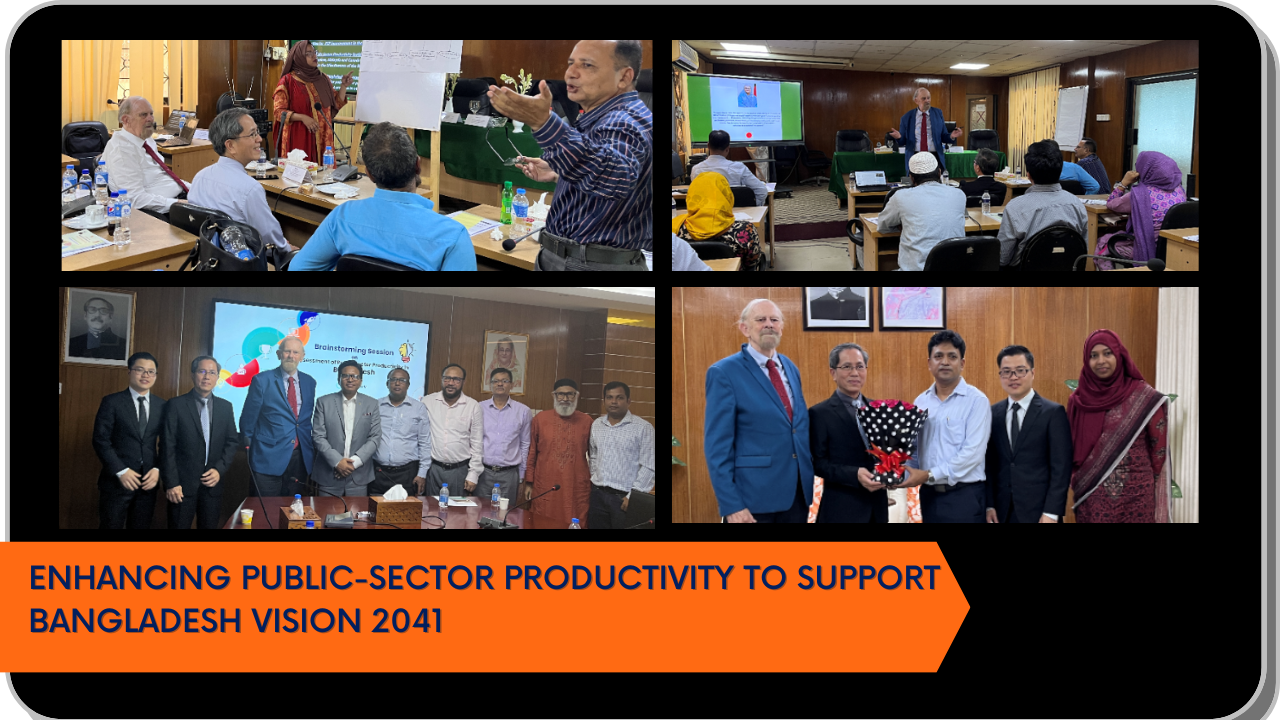
Select Page

Public-sector productivity (PSP) is vital for efficient government operations, directly impacting the quality of public services, policy implementation, and resource management. Higher PSP leads to better governance, enhances public trust, and supports economic growth by attracting foreign investment and promoting private sector expansion.
A hybrid in-country Technical Expert Services (TES) project on Public-sector Productivity Training and Assessment for Bangladesh was conducted by the NPO Bangladesh and the APO Secretariat from 19–31 May to enhance the understanding of PSP and share international best practices. Thirty-three participants from the NPO, relevant ministries, and associations attended the training and were guided by two resource persons, one from Canada and one from the APO Center of Excellence on PSP in the Philippines. Visits were also made to the Bangladesh Public Service Commission, Ministry of Posts, Telecommunications & Information Technology, Bangladesh Civil Service Administration Academy, and NPO Bangladesh to discuss PSP implementation in Bangladesh.
As part of project outputs, an assessment report was developed based on information gathered through questionnaires, interviews, and discussions with the involved organizations. The report provided an overall picture of PSP implementation in Bangladesh, highlighted key challenges, and suggested recommendations for improvement. As Bangladesh strives to achieve Upper Middle-Income Country status by 2031 and High-Income Country status by 2041, enhancing PSP is essential for building an effective public sector, fostering sustainable development, and supporting the nation’s growth aspirations. This project is a significant step towards achieving these ambitious goals.